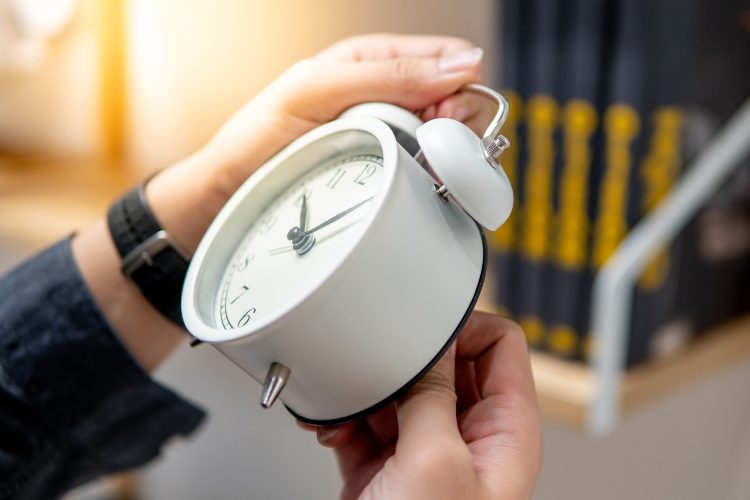
Zephyr_p/Shutterstock
Say goodbye to missing an hour of sleep. Soon, you won’t have to set your clocks back any more because the Senate has approved a bill making daylight saving time permanent.
Daylight Saving Time Permanent

Zoran Zeremski/Shutterstock
Semiannual switching of clocks? We’ll soon forget about it. The Senate has unanimously passed the Sunshine Protection Act, making daylight saving time permanent. The act extends daylight saving time from eight months of the year to twelve months, making daylight saving time permanent across the U.S. in 2023. The bill was first introduced last year, but in early 2022, Senator Marco Rubio of Florida and seven bipartisan members of Congress reintroduced it. Rubio focused on “the disruption that comes with” changing the clock. “One has to ask themselves after a while, ‘Why do we keep doing it? Why are we doing this?’” he said.
At first, DST was introduced to save energy, not for farming as some people believe. But now, it’s not as effective as it was in 1918. Over time, DST was extended from six to eight months, showing that Americans prefer it over standard time. “I think the majority of the American people’s preference is just to stop the back and forth changing,” Rubio said. “But beyond that, I think their preference is — certainly at least based on today’s vote, and what we’ve heard — is to make daylight saving time permanent.”
Residents of the United States approve of the idea; according to an Associated Press-NORC Center for Public Affairs Research poll, 75% of Americans want to stop setting their clocks ahead too. Among Americans, 43% of survey respondents prefer standard time, which is usually from November to March. However, 32% like daylight saving time better.
Moving Forward as Fast as Possible

New Africa/Shutterstock
Congressman Vern Buchanan of Florida, who was the first to introduce the bill back in 2021, hopes to make the process faster by sending a letter to House Speaker Nancy Pelosi. “There are enormous health and economic benefits to making daylight saving time permanent,” Buchanan said. “Florida and 17 other states have already moved to adopt (DST) year-round but cannot do so without congressional approval. It’s time to end the antiquated practice of changing our clocks twice a year.”
Rubio also wants DST to become permanent as fast as possible. “I’m hoping that after today, this will go over to the House of Representatives, and they’ll act quickly on it,” Rubio said. “I know this is not the most important issue confronting America, but it’s one of those issues where there’s a lot of agreement. I think a lot of people wonder why it took so long to get here.”
In addition, Rubio brought the bill up under unanimous consent. In fact, Senator Kyrsten Sinema of Arizona was so happy that she actually whispered a small “Yes!” After all, Arizona, Hawaii, Puerto Rico, the U.S. Virgin Islands, American Samoa, Guam, and the Northern Mariana Islands don’t have daylight saving time. Meanwhile, Senator John Thune of South Dakota, the GOP Senate whip, didn’t even realize that the bill had passed. He joked about missing it by an hour. “I’m fine with that,” he said. “People in South Dakota complain about that all the time.”










